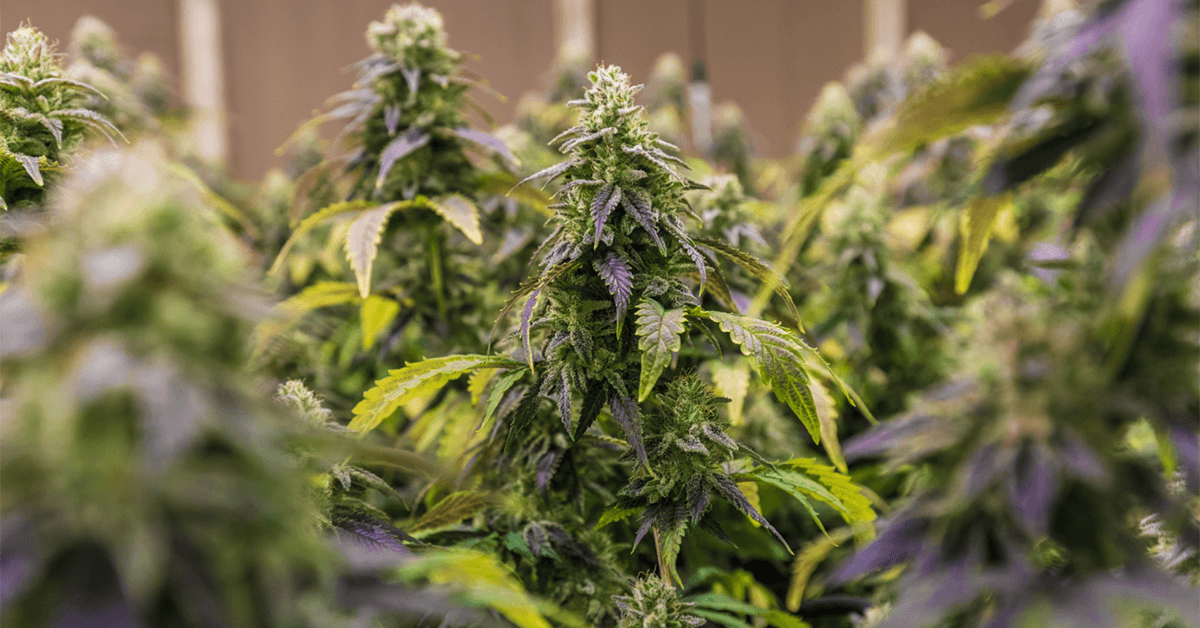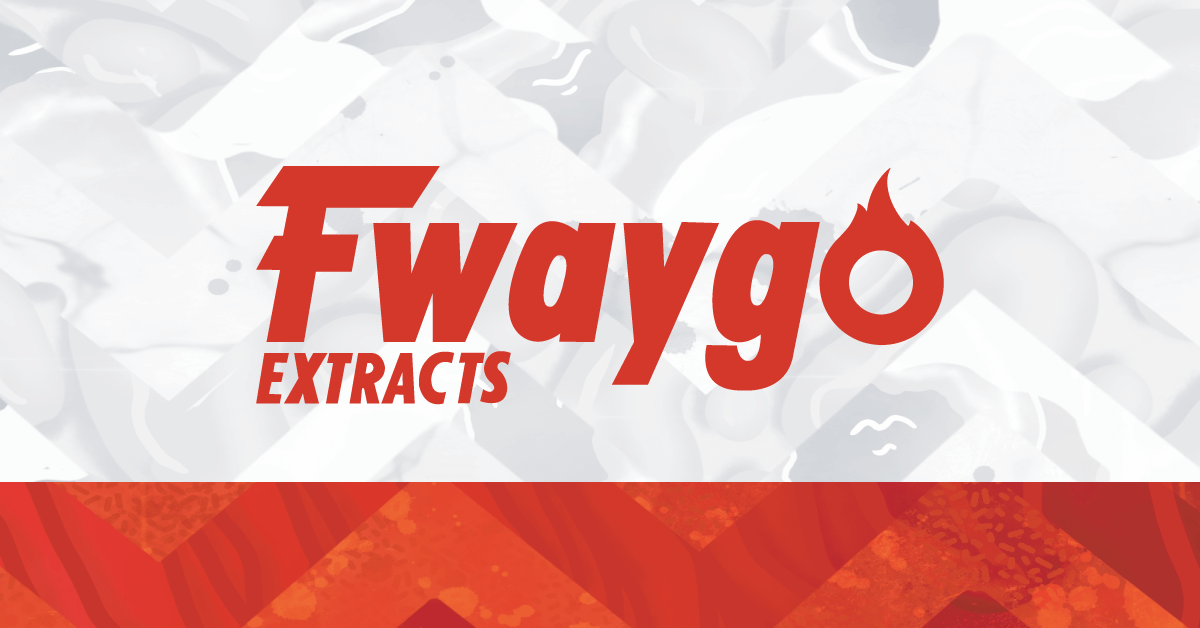New Buffalo Township Hits Pause on Dispensary Licenses After Receiving 35 Applications

New Buffalo Township has announced a temporary halt on the consideration of additional cannabis dispensary licenses following a surge in applications, having received a total of 35. This decision comes at a time when the township currently hosts only two operational dispensaries. The potential approval of all 35 applications would surpass the number of dispensaries in Detroit, highlighting the significant interest in the cannabis industry within the area.
Township officials have expressed concerns over the rapid increase in license requests, despite the promise of substantial tax revenue benefits. The decision to pause was influenced heavily by feedback from the local community, with the majority of residents voicing concerns over the implications of such an expansion.
Michelle Heit, the Supervisor of New Buffalo Township, reflected on the community's input, noting, "I'd say everyone that spoke tonight, other than maybe one person, was a local person. And the impact on them is what really helped make our decision." This statement underscores the township's commitment to considering the residents' perspectives in its regulatory decisions.
Applicants interested in submitting their license applications for consideration have been given a deadline until Monday. This includes submissions that may only be partially complete, indicating the township's willingness to review all potential entrants before finalizing its decision on the current moratorium.
Experience the Best of Local Cannabis at the Green Goddess Market in Paw Paw

The vibrant Green Goddess Cannabis Market is set to light up Paw Paw, Michigan, from April 11th to 13th, offering a unique three-day experience dedicated to celebrating the essence of 420 culture and spotlighting local cannabis cultivators. This event promises a diverse assembly of arts, crafts, and a variety of cannabis-infused products, all originating from the hands and lands of small-scale, local growers.
Event Overview
Location: 45146 West Red Arrow Highway, Paw Paw, MI 49079
Dates: April 11th - April 13th, 10 AM - 8 PM EDT
Admission: Free, with a $20 donation at the gate for an official wristband and one raffle ticket
The Green Goddess Market is more than just a farmers market; it's a celebration of community, creativity, and cannabis. Visitors 21 and older, or 18 and older with a medical card, are invited to explore a world where the passion for cannabis cultivation and the artistry of its community take center stage.
For a modest $20 donation, attendees will receive an official wristband granting them full access to the market's offerings, alongside a raffle ticket for the daily draw. This draw is not just any raffle; it's a chance to win the coveted Green Goddess Gift Basket, brimming with fresh cannabis and a selection of delightful products from the market's very own farmers. The anticipation peaks daily at 4:20 PM, when the winner is announced, adding an extra layer of excitement to the market's vibrant atmosphere.
This event is a sanctuary for those eager to delve into the nuances of 420 culture, offering an up-close look at the art and science of cannabis cultivation. Attendees can expect a treasure trove of handmade and homegrown products, ranging from edibles and medibles to unique arts and crafts, each telling its own story of passion and dedication.
Why You Should Attend
- Support Local Growers: The Green Goddess Market is a rare opportunity to meet and support local cannabis cultivators, whose dedication to their craft ensures the highest quality products.
- Discover Unique Products: Explore a vast selection of cannabis-infused products, including edibles, medibles, and more, all created with love and care by local artisans.
- Immerse in 420 Culture: Whether you're a seasoned enthusiast or curious newcomer, the market offers a welcoming space to celebrate and learn more about the rich culture surrounding cannabis.
- Win Exciting Prizes: Your donation not only grants you access to this vibrant community event but also a chance to win daily prizes that celebrate the spirit of cannabis generosity and community.
Join Us
Mark your calendars for this unforgettable gathering that promises to be a highlight of the year for cannabis enthusiasts and advocates alike. The Green Goddess Cannabis Market is more than an event; it's a testament to the unity and creativity of the cannabis community. We look forward to welcoming you to Paw Paw, Michigan, for three days of celebration, discovery, and connection.
Michigan Cannabis Sales Surge in February with Impressive Growth

In February, Michigan's cannabis industry experienced a notable uptick, with total sales reaching $261.1 million, marking an almost 10% increase from January's $242.8 million. This growth encompasses both adult-use and medical cannabis markets, with adult-use sales dominating at $257.9 million, compared to the significantly smaller $2.2 million in medical sales.
The price per ounce for medical cannabis stood at $102.16, whereas adult-use cannabis was slightly cheaper at $91.94, as reported by the Cannabis Regulatory Agency (CRA). The adult-use market saw sales of 474.9 pounds of cannabis.
Employment within the sector is also on the rise, with 35,335 individuals now working across both medical and adult-use cannabis companies, indicating a robust job market within this burgeoning industry.
A breakdown of sales by product category highlights the diverse consumer preferences in Michigan's cannabis market:
- Flower led the sales with $118.4 million.
- Vape cartridges followed at $49.7 million.
- Inhalable compound concentrates garnered $28.9 million.
- Infused edibles, which include a variety of consumable cannabis products, reached $24.2 million.
- Shake and trim rounded out the top sellers with $20.8 million.
The detailed sales data for February 1 – February 29 further specifies the quantities sold and total sales for each category:
- Flower: 80,463.73 pounds, totaling $118,364,463.66.
- Shake/Trim: 21,570.44 pounds, totaling $20,810,819.73.
- Concentrate: 3,089.37 pounds, totaling $15,428,855.68.
- Inhalable Compound Concentrate: 7,902.16 pounds, totaling $28,858,791.87.
- Vape Cartridge: 9,494.76 pounds, totaling $49,717,379.36.
- Kief: 15.68 pounds, totaling $51,630.26.
- Infused-Edible: 350,520.37 units, totaling $24,180,154.12.
- Infused Non-Edible Solid: 1,218.96 units, totaling $507,475.79.
- Infused Liquid: 698,587.08 fluid ounces, totaling $821,346.29.
- Infused Non-Edible Liquid: 15,242.56 fluid ounces, totaling $116,728.44.
The total of 474,275.47 pounds and 713,836.74 fluid ounces sold translates into a comprehensive $258,857,645.20 in sales, showcasing the dynamic and expanding nature of Michigan's cannabis industry.
Fwaygo Extracts Ends Operations Following CRA License Suspension

On March 14th, 2024, a significant development unfolded in the cannabis industry in Lansing, Michigan, as TAS Asset Holdings, LLC—more widely recognized as Fwaygo—formally surrendered its medical and adult-use cannabis processor licenses. This action follows a consent order and agreement with the Cannabis Regulatory Agency (CRA), culminating in the cessation of Fwaygo's operations.
The events leading up to this point began in February 2023 when the CRA put forth formal complaints against the company, coupled with immediate summary suspensions of their licenses. An intensive review was undertaken by the CRA to examine the allegations. It was concluded that the company's continued operation posed a potential risk to public health and safety, primarily based on how they were managing their products and operations.
The core issue identified was Fwaygo's mixing of cannabis products with unregulated cannabis before distributing them into the state's legal market. The products in question were being sold under the "Fwaygo Extracts" brand, with a particular product known as "Space Rocks" drawing attention. Evidence, including surveillance footage, indicated that Fwaygo employees had been introducing unregulated cannabis into their product lines directly from personal vehicles.
As a result of these findings, Fwaygo agreed to a voluntary surrender of their processing licenses and affirmed that they would not seek renewal or reactivation in the future. Furthermore, the CRA disclosed that TAS Asset Holdings, LLC holds additional licenses under the same ownership, which will also remain permanently nonoperational:
- TAS Asset Holdings, LLC, License No. GR-A-000228
- Noble Road Company, License No. PR-000091
The CRA has taken this opportunity to remind consumers to remain vigilant regarding the products they use. Those experiencing any adverse reactions to cannabis products are urged to report these incidents to the CRA by email at [email protected] or by phone at 517-284-8599. The proactive engagement of consumers is crucial in maintaining the integrity and safety of Michigan's regulated cannabis market.
This enforcement action by the CRA serves as a stark reminder of the stringent regulations in place to protect consumers and the legal cannabis market's integrity. It also underscores the agency's commitment to enforcing these regulations to ensure that all operations adhere to the highest standards of safety and legal compliance.
Detroit Cup 2024: A Celebration of Cannabis Culture and Competition

The Detroit Cup 2024, a prominent event in the cannabis community, is set to take place from February 29th to April 21st, with a series of activities culminating in an award show on April 24th. Hosted at the DMs Social Club located at 14335 W McNichols Rd, Detroit, MI, the event, powered by King Michigan, promises an engaging mix of music and cannabis culture, underscored by the "Music Sesh" happening on April 18th.
Event Overview
The Detroit Cup offers a platform for cannabis connoisseurs and enthusiasts to showcase and evaluate a variety of cannabis products across numerous categories. The event spans several weeks, beginning with the intake and product submission phase from February 29th to April 20th. Following this phase, judge kits will be made available from April 19th to 21st, enabling participants to cast their votes on April 21st.
Categories and Competition
The competition is segmented into recreational and medical categories, catering to a wide range of cannabis products and experiences. The recreational segment includes categories for Indica, Sativa, and Hybrid flowers; pre-rolls and infused pre-rolls; solvent and non-solvent concentrates; distillate and non-distillate vape pens & cartridges; edibles (gummies and non-gummies); sublinguals, capsules, tinctures, and topicals. The medical segment focuses on Indica, Sativa, and Hybrid flowers; pre-rolls; and edibles, highlighting the event's comprehensive approach to addressing the diverse preferences and needs within the cannabis community.
Entertainment and Participation
Adding to the excitement, the event offers performance slots for artists, with each slot allowing for two songs within a seven-minute period, priced at $100. General admission to the event is set at $30, providing attendees with access to the vibrant atmosphere and the chance to witness the award ceremony firsthand.
For those looking for an enhanced experience, a $100 party bus option includes a 3.5-hour round trip with four stops, offering a unique way to enjoy the festivities. A $50 VIP package offers a four-day membership, a cup, and access to an exclusive after-party, ensuring an unforgettable experience for the most avid fans and participants.
Conclusion
The Detroit Cup 2024 stands as a testament to the growing acceptance and celebration of cannabis culture in Michigan. With its diverse categories, engaging entertainment options, and inclusive community atmosphere, it promises to be a highlight on the cannabis event calendar, fostering both competition and camaraderie among enthusiasts and industry insiders alike.
Agrify Provides Cutting-Edge Extraction Solutions to Justice Cannabis's New Jersey Venture

Agrify Corporation (NASDAQ: AGFY), a prominent supplier of advanced cultivation and extraction technologies for the cannabis sector, has recently formalized an agreement with Justice Cannabis Co., a multi-state licensed operator known for its 14 dispensaries nationwide, to enter the burgeoning New Jersey market.
The agreement entails Justice Cannabis's acquisition of Agrify's comprehensive Hydrocarbon Extraction and Lab Equipment Package. This package includes the X10 Hydrocarbon Extractor, Filtration Equipment, Solvent Recovery System, a 20L Decarboxylation Package, Diamond-Miner, and Thin-Film Distillation System. Furthermore, to ensure safe and efficient operations, Justice Cannabis has also secured Agrify's UL-Compliant C1D1 Explosion Proof Room, renowned for its quick and straightforward installation process that takes less than a day and comes with a PSI technical report certification, validating its safety across all 50 states.
Originating in 2014 by civil rights attorneys in Chicago, Illinois, Justice Cannabis Co. was driven by the founders' ambition to deliver high-quality cannabis products universally. Built on the principles of adventure and exploration, Justice Cannabis has consistently showcased the significant potential of cannabis in fostering communal well-being through its varied product lines, retail experiences, partnerships, and educational initiatives. Currently, Justice Cannabis is licensed in seven states, including Illinois, Pennsylvania, Massachusetts, New Jersey, Michigan, Missouri, and Utah. In New Jersey, it operates three dispensaries under the Bloc Dispensary brand and distributes its flower products under the Crops brand. The partnership with Agrify aims to enhance Justice Cannabis's new cultivation and extraction facility, spanning approximately 72,000 square feet.
Raymond Chang, Chairman and CEO of Agrify, expressed his enthusiasm about the collaboration, stating, "It is truly an honor to have the opportunity to work with the industry-leading MSO, Justice Cannabis Co., across multiple states, and now in New Jersey. Our team has been involved with Justice Cannabis since the project's inception in 2022, and we take great pride in being their partner of choice at every step. We are eagerly anticipating the completion of the new Justice Cannabis extraction facility in New Jersey."
Echoing the sentiment of successful past collaborations, Alexzandra Fields, President of Justice Cannabis Co., remarked, "After our positive experience with Agrify on our Illinois extraction facility, choosing them for our New Jersey venture was a natural decision. We are very satisfied with the performance of their equipment and are excited to introduce extraction-based products to the New Jersey market."
For those interested in the financial side of the cannabis industry, an exclusive opportunity awaits. By signing up through our Robinhood referral link, you might secure a free portion of Agrify stock, making you a part of the groundbreaking journey of companies like Agrify in the cannabis sector. Explore this chance and potentially start your investment journey in the burgeoning cannabis market.


 Helpful Links
Helpful Links